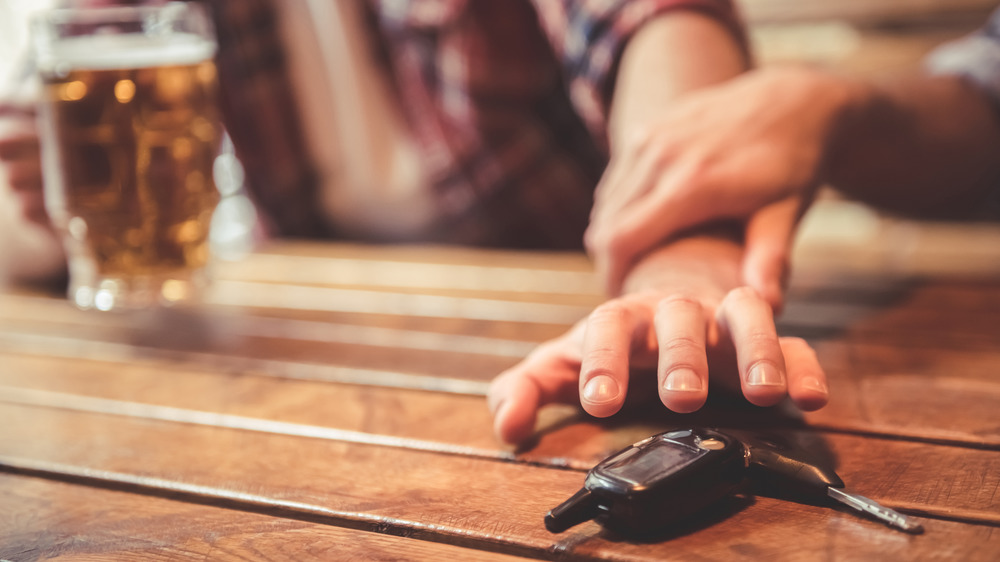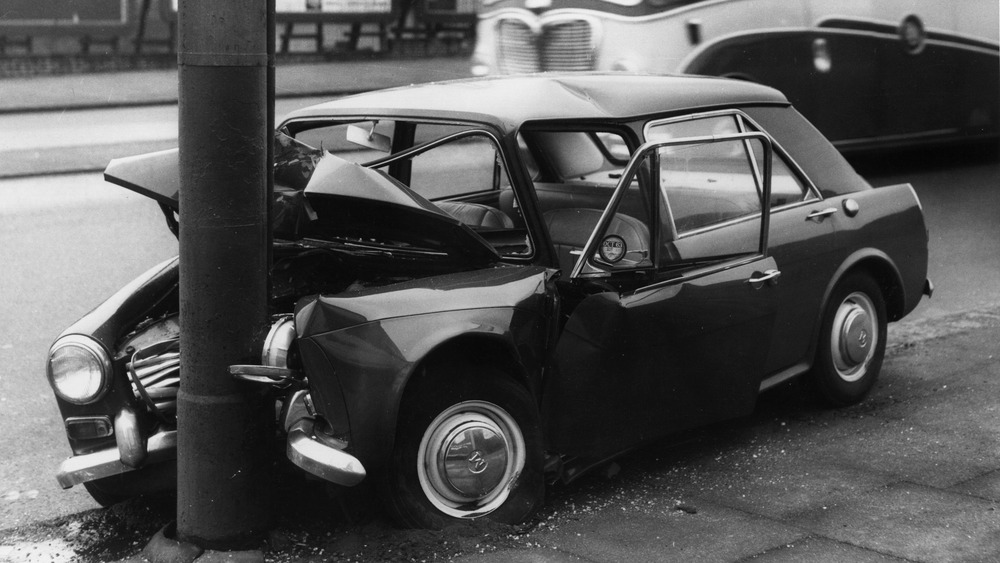The Disturbing Way Drunk Driving Was Viewed 50 Years Ago
So, you've been tossing back a few with your palls at the local disco club, or whichever watering hole is popular with the kids these days, and it's getting a bit late. You have an early day at the office, so you should probably head home soon. In the spirit of era inclusivity, you look at your newly minted pocket watch hidden within the folds of your Victorian dresswear. What's this? Where once there were two hands, there are now four! A quick gaze around the room and you notice its spinning. Uh oh. You're — dun dun dun — intoxicated.
Now, you need to decide on whether you're going to: A) hop on that old disco horse and take yourself home or B) call for the nearest carriage. If you choose option A, you'll put not only your own life at risk, but the lives of every other weary Victorian disco traveler on the street. You're a good lad(y), so you choose to call a cab. Why? Because drunk driving is wrong.
According to the National Highway Traffic Safety Administration, more than 10,000 people are killed each year in drunk driving accidents. It's been common knowledge for quite some time that drunk driving is dangerous, but people do it anyway. These days, society looks down on the act while we try to reduce the number of casualties. But, as disturbing as it is, that's not how drunk driving was viewed 50 years ago.
Drunk driving was an old fashioned rite of passage
As we walk back through the years, we see safety rules become laxer and laxer. Not just legal standards, but the societal view as a whole. Seatbelts weren't even required until 1968. Hand washing wasn't around for most of human history. Basically, humans have lucked out with that whole "survival of the fittest" thing.
Drunk driving is no different. Going back 50 years or so, getting behind the wheel after a night on the town wasn't a big deal. It was all too common. According to Russman Law, drunk-driving was, in essence, a rite of passage, a "folk crime" like jaywalking or fishing without a license. It was illegal, but no one was going to judge you for it. The case wasn't much different in court either.
Since the crime of drunk driving was seen more as a story you'd laugh about with your friends than a stupid and dangerous thing that actively kills people, a lot of people got away with it. It wasn't hard. You'd request a jury trial since everyone else was probably drunk driving anyway, then — snap! — you'd be off the hook. Even without a jury, it was difficult to convict a drunk driver of, well, drunk driving because there weren't many states with blood-alcohol laws until well into the '70s. Before that, the prosecution had to prove that the alcohol in your blood impacted your ability to operate a vehicle, not an easy thing to prove.

